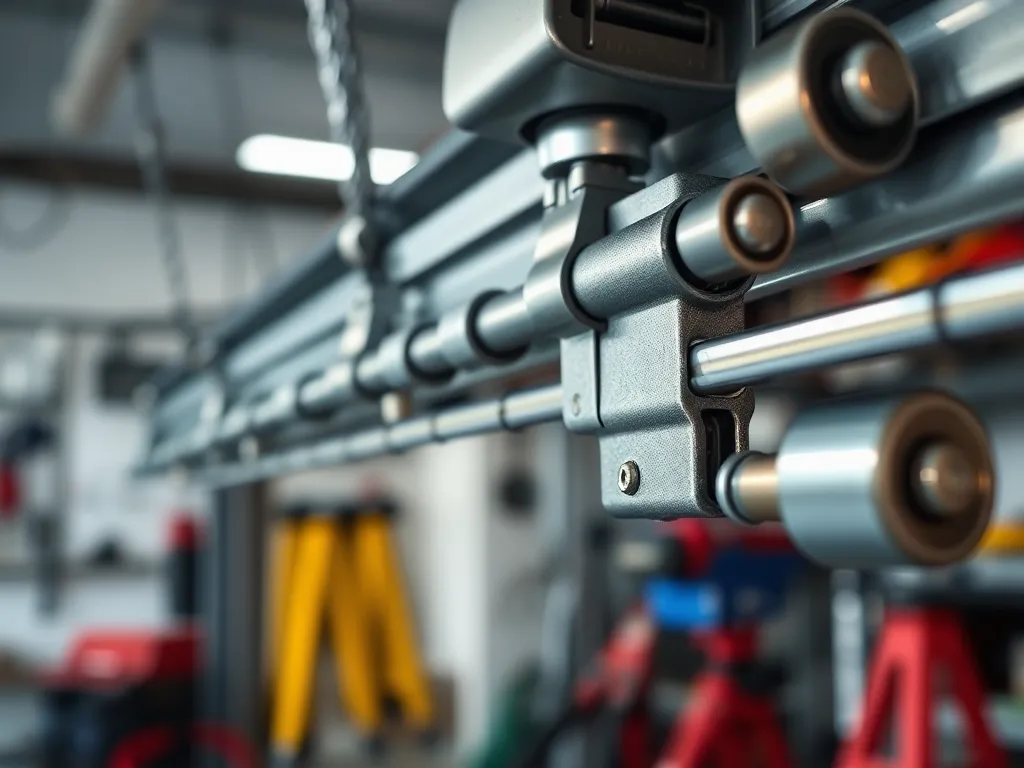Optimal Frequency for Lubricating Garage Door Parts

Essential Guide to Garage Door Maintenance
Garage Door Maintenance is crucial in ensuring the longevity and functionality of your garage door system. Regular upkeep not only enhances safety and convenience but also prevents costly repairs down the road. Delving into routine checks and maintenance tips can help homeowners maintain their garage doors effectively.
Regularly checking your lubrication schedule can prolong the life of your garage door components.
One of the principal aspects of Garage Door Maintenance is lubrication. This process minimizes friction between moving parts and ensures smooth operation. Neglecting lubrication can lead to wear and tear, resulting in an increase in noise and a decrease in performance, not to mention higher repair costs. Implementing a well-planned lubrication schedule is paramount for optimal functionality.
Another key element of Garage Door Maintenance is the inspection of hardware components such as springs, rollers, and cables. Regular checks enable homeowners to spot wear and any potential issues early on. Identifying problems early through consistent monitoring can save time and money when dealing with garage door repairs.
Understanding the ideal maintenance frequency for your garage door can prevent costly repairs down the line.
In addition to hardware, the garage door motor and electrical components also need attention in Garage Door Maintenance. Testing the auto-reverse feature and ensuring the sensors are clean and free from obstructions are vital checks for enhancing safety. Regular electrical component inspections can also prevent unexpected failures and enhance the longevity of the garage door mechanism.
Lastly, it’s essential to keep the garage door clean and free from debris. Regular cleaning not only improves the aesthetic appeal but can also prevent rust and deterioration. A thorough clean combined with regular inspections forms the foundation of effective Garage Door Maintenance.
Importance of Lubrication
Lubrication is essential in maintaining the various moving parts of your garage door system. Proper lubrication reduces friction, prevents wear and tear, and ensures the door operates smoothly, minimizing strain on the motor. This contributes to an extended life span for both the door and the opener mechanism.
Investing time in proper garage door care ensures both safety and functionality for your home.
Neglecting lubrication can lead to several issues, including squeaky noises, slower door movement, and increased resistance during operation. Eventually, lack of lubrication can cause severe damage, resulting in more expensive repairs or even the need for replacement components, making it essential to prioritize this maintenance task.
Common lubricants for garage doors include silicone-based spray lubricants and lithium grease. Silicone lubricants are great for metal components, while lithium grease is typically used on garage door springs and hinges. Avoid using WD-40 as a lubricant, as it can wash away existing grease and lead to increased friction in the long run.
Frequency of Lubrication
Garage door parts should be lubricated at least twice a year. However, if the door is used frequently, more frequent lubrication may be necessary. Weather conditions, such as exposure to humidity, can also impact how often lubrication is needed. It’s crucial to keep track of the performance of your door to determine the right lubrication schedule based on its usage.
During seasonal changes, especially before winter and summer, it's a good practice to inspect and lubricate the garage door. Cold temperatures can cause parts to contract and become less efficient, while heat can lead to expansion and increased friction in the system. Adopting a seasonal approach ensures the door remains in optimal condition year-round.
Signs that lubrication is needed include unusual noises during operation, sluggish movement, or visible rust on parts. If you notice any of these signs, it's time to re-evaluate your lubrication schedule to maintain safe and efficient garage door functionality.
Types of Garage Door Components
The various parts of a garage door that require lubrication include the springs, rollers, hinges, tracks, and the motor chain. Each of these components plays a vital role in the operation of the door and should be inspected and lubricated as needed to ensure smooth functionality.
Comparison between manual and automatic garage doors indicates that while both types require regular maintenance, automatic doors necessitate extra attention to electrical components and the opener system. Conversely, manual doors may require more frequent checks of mechanical components due to increased physical interaction.
The material of garage door components, whether metal, plastic, or composite, has an impact on lubrication frequency. For instance, metal parts may require more regular lubrication due to rust potential, while plastic components might need less frequent attention. Understanding the material makeup can help tailor a maintenance plan specific to your garage door's needs.
Lubrication Techniques
Best practices for lubricating garage doors include cleaning components before application, using the right type of lubricant for each specific part, and ensuring even coverage to avoid excess that can attract dirt. It’s also crucial to follow manufacturer recommendations to avoid voiding warranties.
Tools needed for effective lubrication include a ladder (if your garage door is high), rags for cleaning purposes, spray lubricant or grease applicator, and protective gloves. Gathering these tools beforehand ensures the process is smooth and straightforward.
Common mistakes to avoid during lubrication include over-lubricating, neglecting to clean parts before applying lubricant, and using the wrong type of lubricant. Each of these missteps can lead to more harm than good, emphasizing the necessity for careful attention during maintenance.
Long-term Care for Garage Doors
Scheduling maintenance checks at least once a year can significantly enhance the longevity of your garage door system. During these checks, a professional technician can inspect various components more thoroughly and identify any issues that might require attention earlier than they would otherwise be noticed.
Lubrication plays a critical role in extending the lifespan of garage doors. Properly maintained components not only function better but also experience less wear over time, meaning that routine lubrication can make a significant difference in a door's overall longevity and performance.
Preventive maintenance tips include keeping tracks clear of debris, tightening loose hardware, ensuring electrical components are in good working condition, and periodically checking the door balance. Emphasizing these tasks alongside regular lubrication can create a robust maintenance regimen that keeps your garage door functioning efficiently for years.
